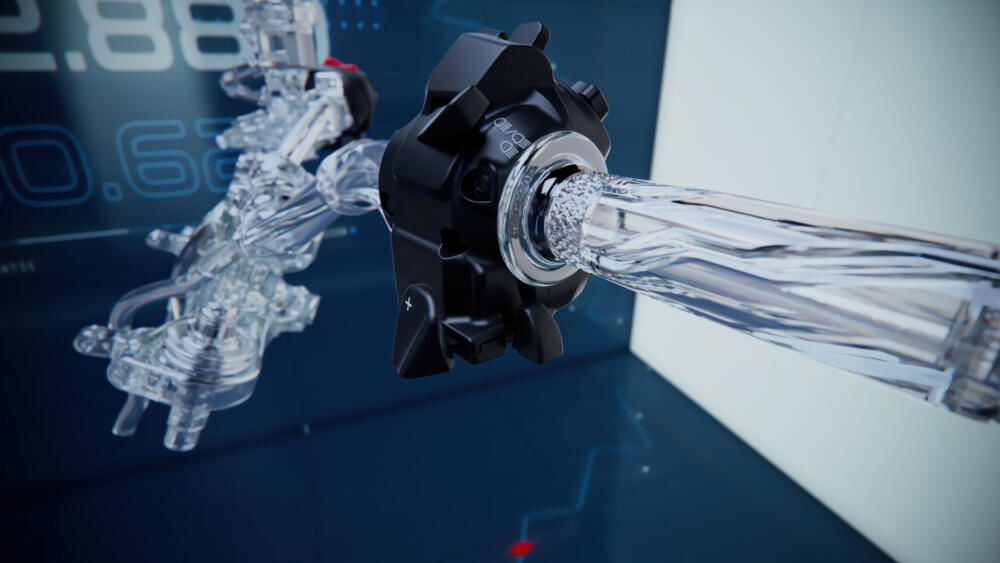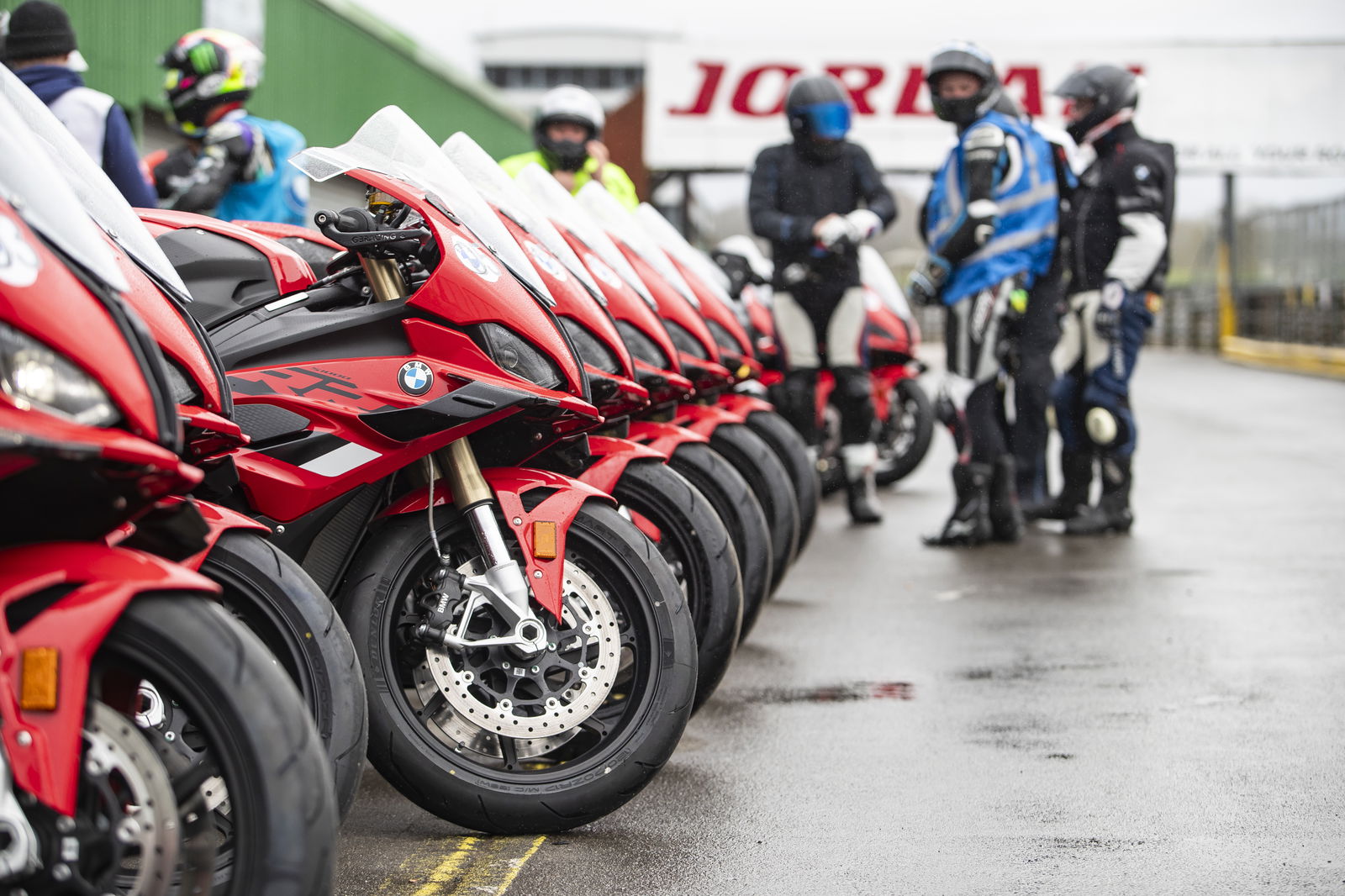Bhutan on a Royal Enfield Himalayan: 'Gross National Happiness' on Two Wheels
I took a low-speed adventure on a Royal Enfield across the hidden Himalayan kingdom of Bhutan
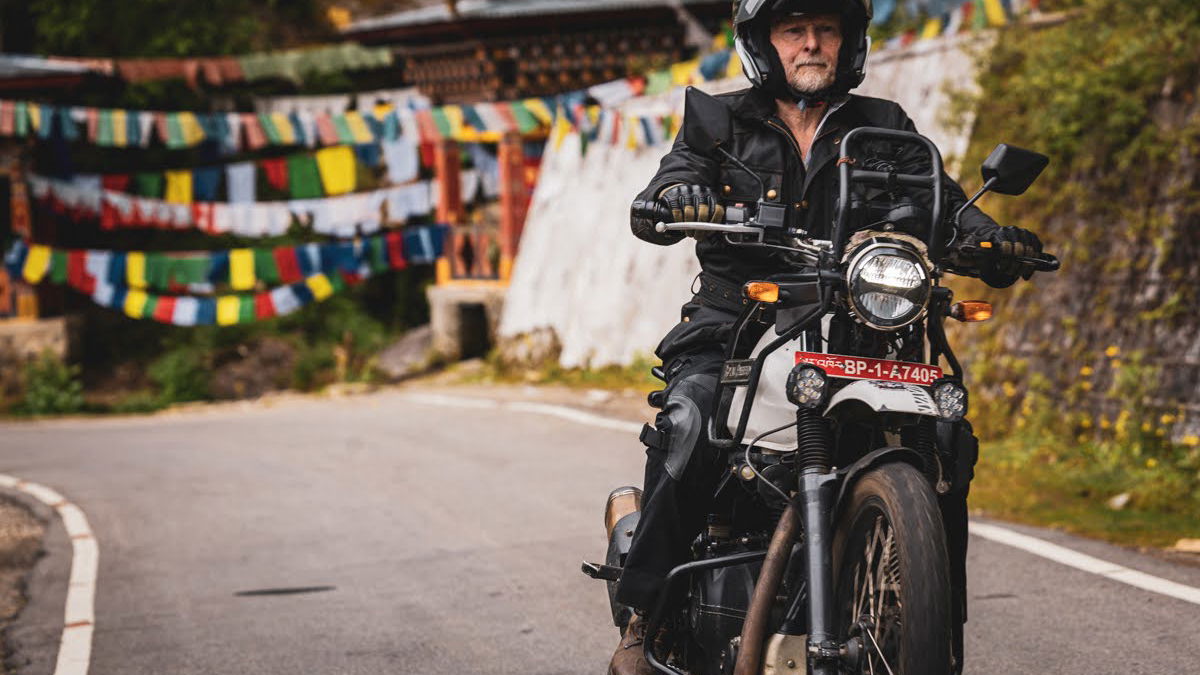
No traffic lights, obliging motorists, mile after magical mile of knee-scraping corners - if the Buddhist god of motorcycling created the zen of bike destinations it would likely be in the breath-taking backwater of Bhutan.
Sandwiched between the fledgling superpowers of India and China, this tiny, time-warp kingdom clings to the edge of the Himalayas and remains a low-revving haven of calm in an increasingly fast-paced world.
A country infused with deep-rooted traditions and warm hospitality, saddling up on two wheels is by far the best way to experience Bhutan’s sensational scenery and Gross National Happiness – a unique measure of the population’s overall well-being - up close and personal.
.jpg?width=1600)
Remarkably, the Land of the Thunder Dragon only opened to tourists 50 years ago, celebrating that landmark anniversary as recently as June. Remote and removed, the country remains wrapped in a veil of mystique, partly because visiting is not exactly the cheap option.
Bhutan’s Sustainable Development Fund (SDF) is a bone of contention in the local travel industry as it requires every visitor to pay a daily fee of $100, money that is then pumped back into tourism.
While some question the wisdom of the charge – it used to be $250 – there’s no doubt the SDF ensures Bhutan isn’t overwhelmed with travellers, maintaining its other-worldly personae. A compulsory guide is an extra cost, although now visitors are allowed to book every element themselves, rather than through a registered tour operator as before.
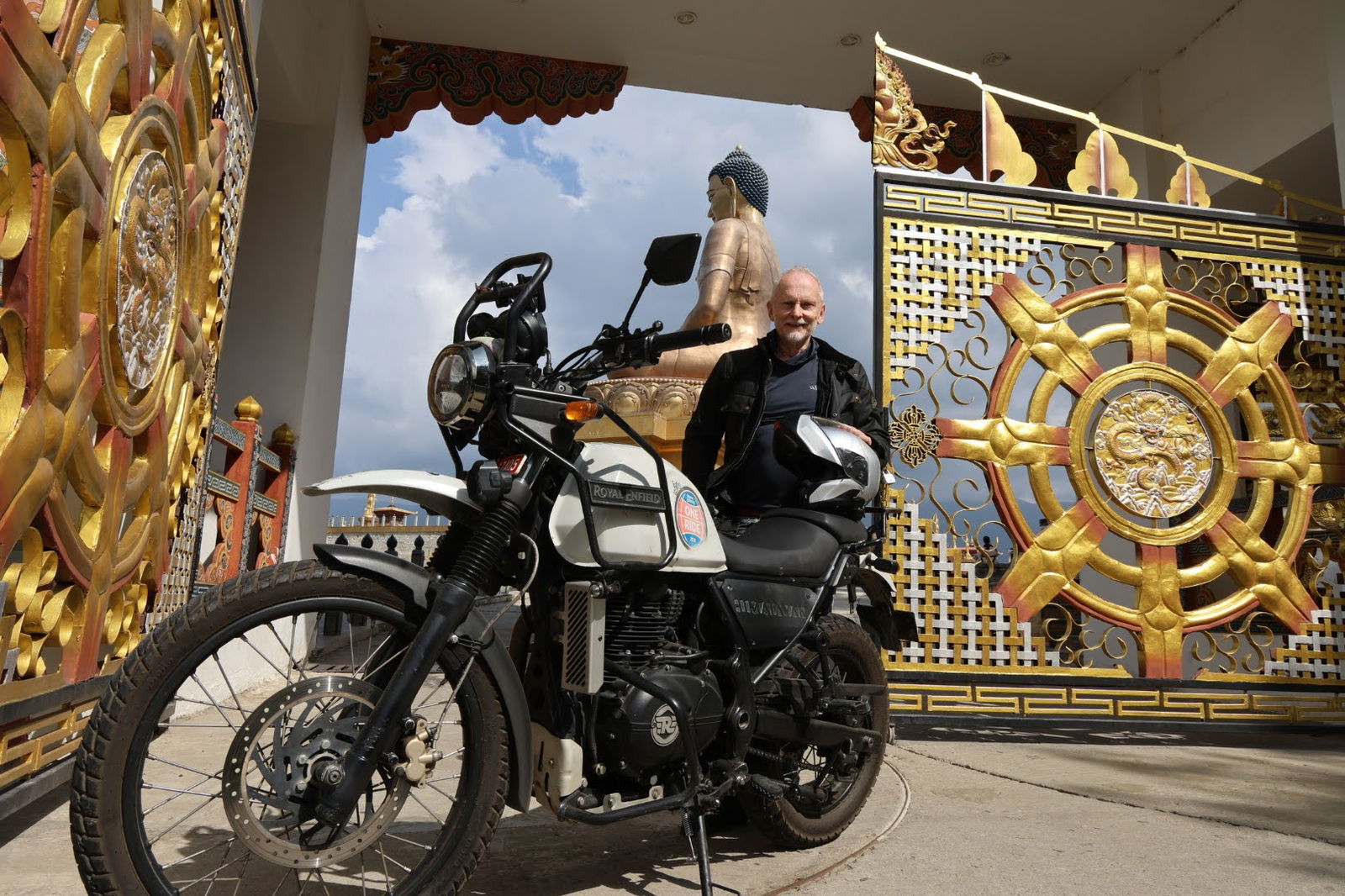
However, before planning commences on a bucket list ride, park any thoughts of that ultimate road trip on a beefy BMW 1300 GS, KTM 1290 or Triumph Tiger 1200. As I quickly discovered, there’s only one bike custom-built for Bhutan’s unique topography…
‘No hurry, no worry’ says the sign leaving Bhutan’s lone international airport. Nestled in a valley between 18,000-foot peaks, only 24 pilots are qualified to land at Paro, thanks to the runway’s geographically complicated location.
Paro is a shoo-in on the world’s ‘most dangerous’ list (Google the pilot-eye video). Passengers cheer when the plane lands but that shouldn’t deter you. Even if the worst happens, the country is deeply immersed in the Buddhist tradition and the concept of reincarnation.
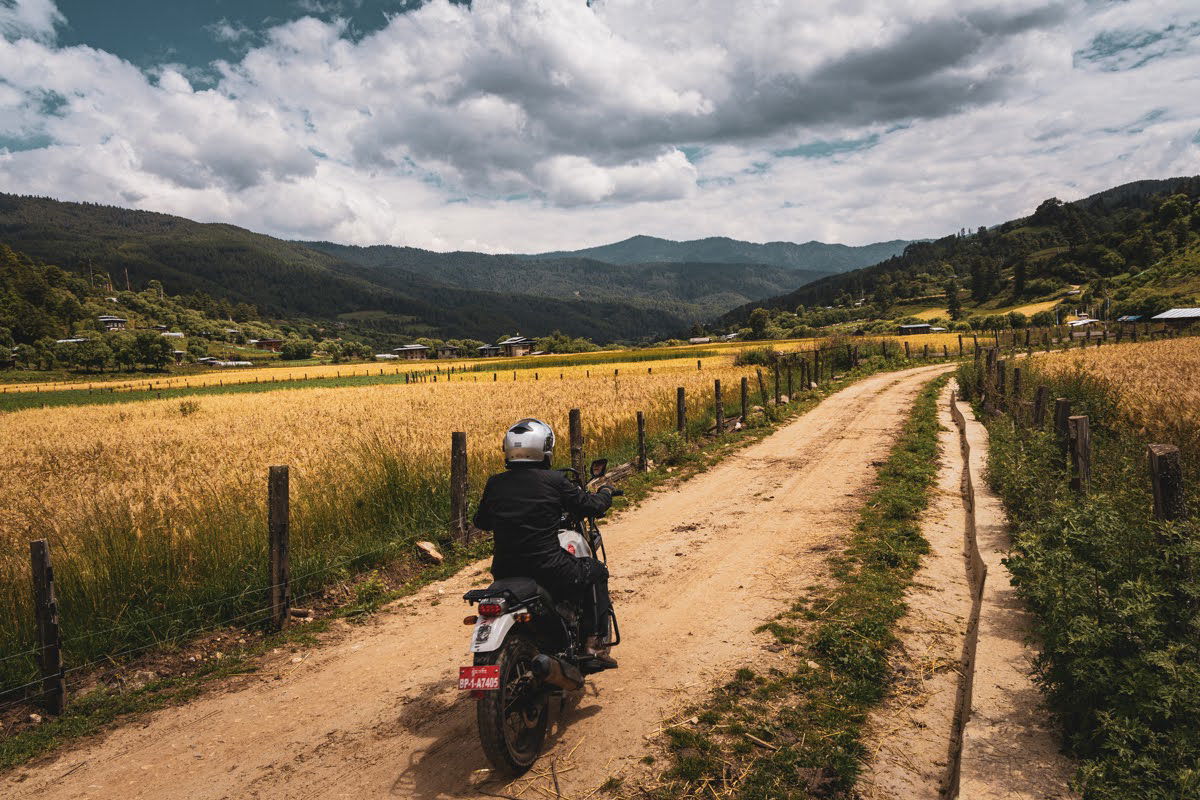
Every cow, horse or donkey lazing on the roads has read the memo. Whether on a motorbike, in a car, or steering a battered Bharat Benz lorry up a single-track mountain pass, any motorist who doesn’t give way to livestock will suffer very bad karma, or come back as Matt Hancock.
The Bhutanese call these stubborn animals ‘roundabouts’ and they pop up everywhere. To counter such dangers, a blanket 50kmh speed limit covers country roads – reduced to 30kmh in urban areas. That may sound Draconian but you likely haven’t hit a cow pat on a hairpin, with a 200-metre drop on the exit and no barrier.
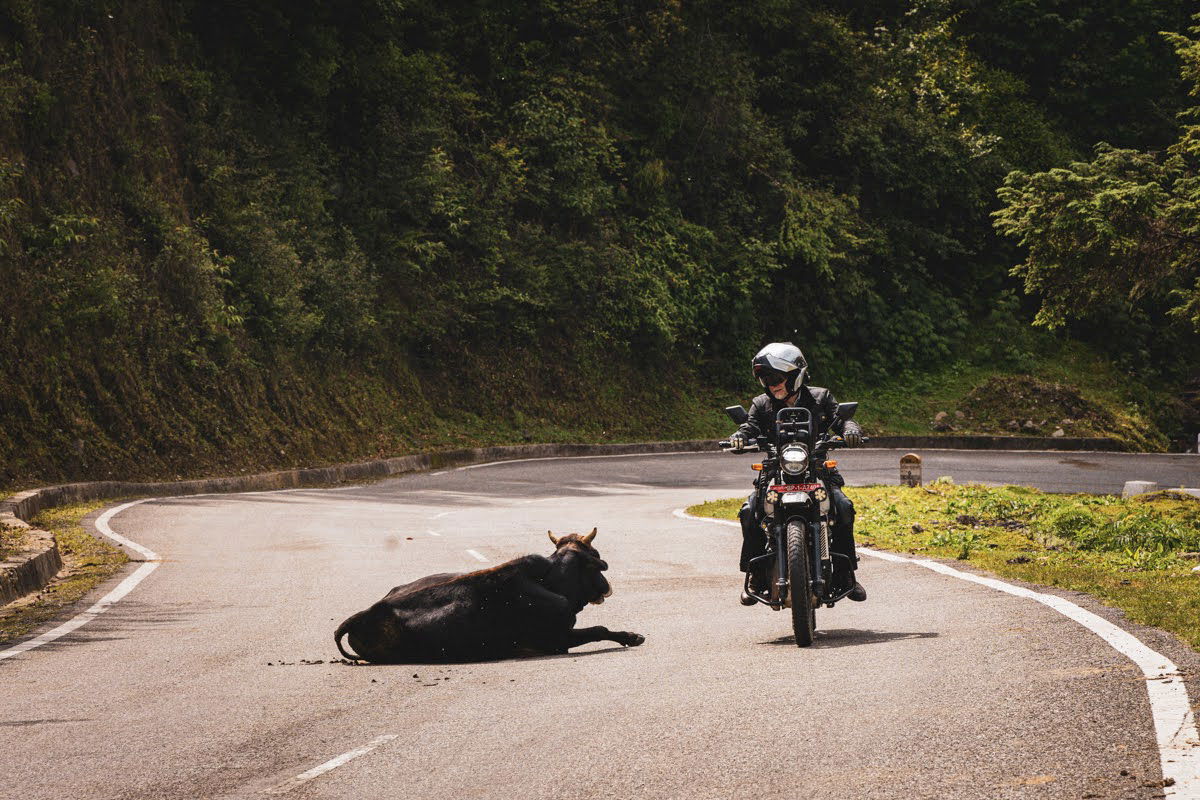
My ten-day motorcycle tour has been arranged by Bhutanese company Jigme Expeditions. I’ll be riding one of the firm’s Royal Enfield Himalayans – without doubt, the most sought-after bike in the country, thanks to its lightweight, low-speed, easy-to-fix and go-anywhere abilities.
And not the new 450cc version either. The government here has slapped an import ban on all new vehicles, in a bid to boost the country’s dwindling foreign reserves. Instead, I’m allocated a 2017, 411cc model – a single-cylinder plodder loaded with modest performance. For low-speed chugging on these roads, it’s the obvious solution.
BP1 A7405 already bears the scars of previous adventures but oozes character. The front fly-screen is missing and the weedy headlight has been replaced with a more powerful Honda Hero lens – perfect for warning off the high-rise Toyota Coasters that lean perilously on approach.
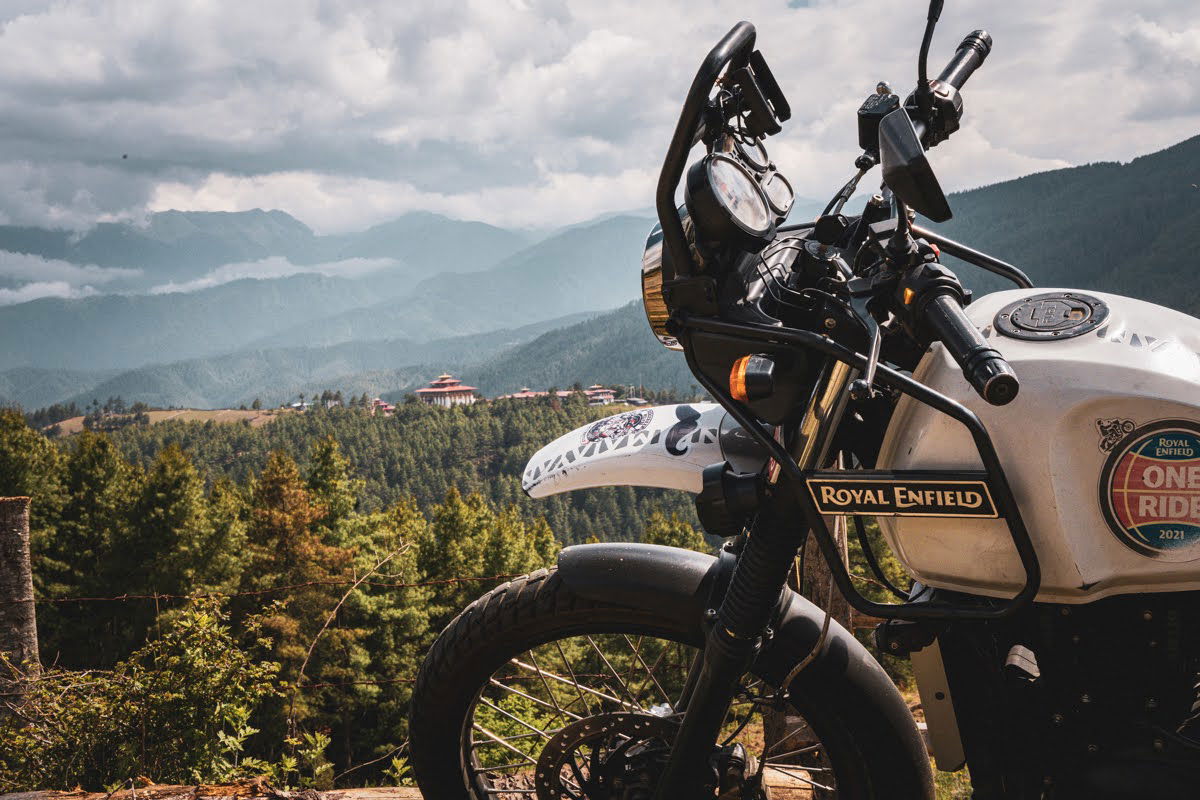
Photographer Ben isn’t at the airport to meet me, he’s already suffering his own bad karma – or possibly korma – after a bout of food poisoning in Kathmandu (there are no direct flights to Bhutan from the UK). Instead, company owner, the ever-affable Jigme Tshering, calmly explains the rules of the road as we drive northeast to meet him in the capital, Thimphu.
Overtaking in slow-moving traffic – often on blind corners – is commonplace. Most of the lorries display a hand-painted ‘press horn’ sign on the rear to signal your intention to pass, while any white line in the middle of the road is for guidance only. Dogs ignore the Highway Code but road rage is unheard of, apart from random cow pissing.
.jpg?width=1600)
Tiny Thimphu has 114,000 residents – roughly the same population as Ipswich but that’s where the comparison ends. The numbers swell during the spring and autumn when the colourful, Buddhist festival seasons are in full swing. In June, there’s not a Western face in sight.
Our brace of Himalayas is waiting outside the city centre hotel, where we meet our road captain, mechanic and guide all gathered to greet us. The distractingly impressive backdrop is dominated by amplified chanting from the National Memorial, a large Buddhist shrine that pilgrims circumambulate all day, whirling a large red prayer wheel as they go.
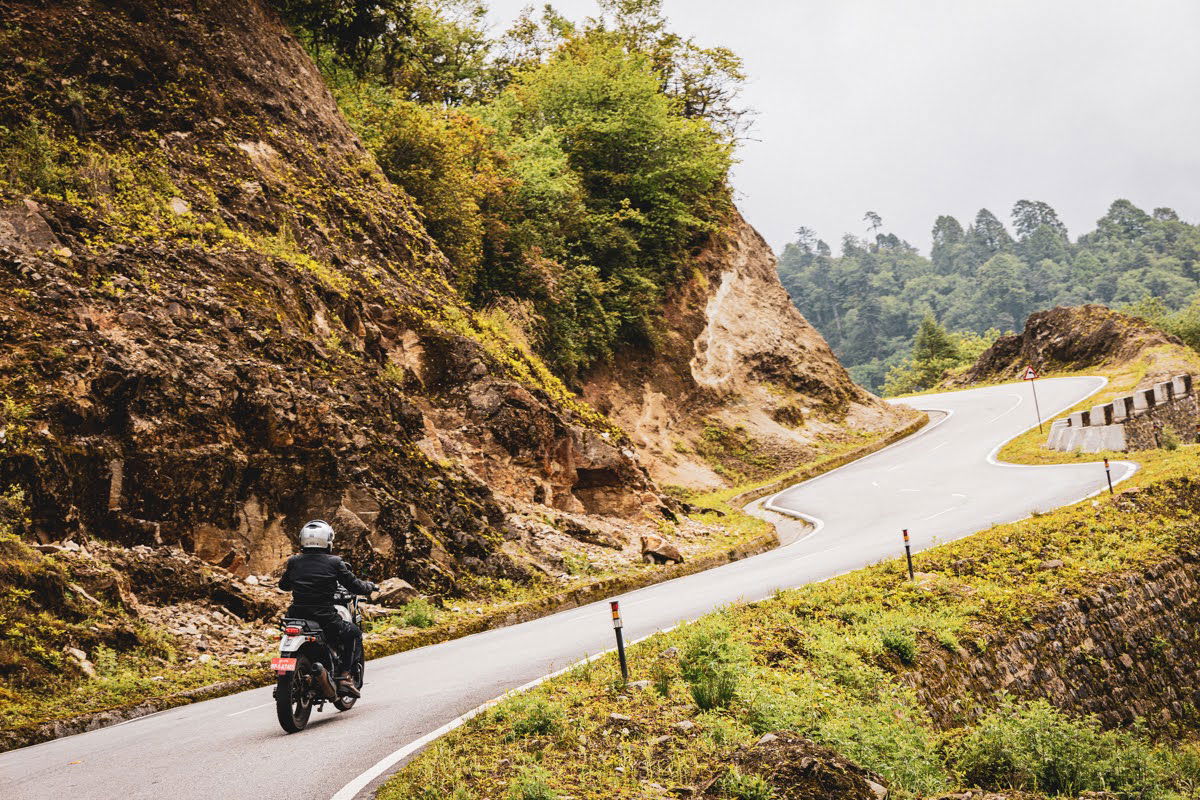
Even more overwhelming is the Buddha Dordenma Statue, a short ride away. The massive, golden monument dominates a hillside and measures 169 feet high, with another 125,000 mini Buddhist statues hidden inside. You won’t see that in Ipswich either.
Thimphu roads are about as hectic as Bhutan gets. The city is also a last chance to stock up on any must-have kit, although I’d advise against chogo - solid lumps of yak cheese found hanging in garlands at roadside stalls. Riding and chewing domo, an addictive betel nut, could also result in more than a warming glow.
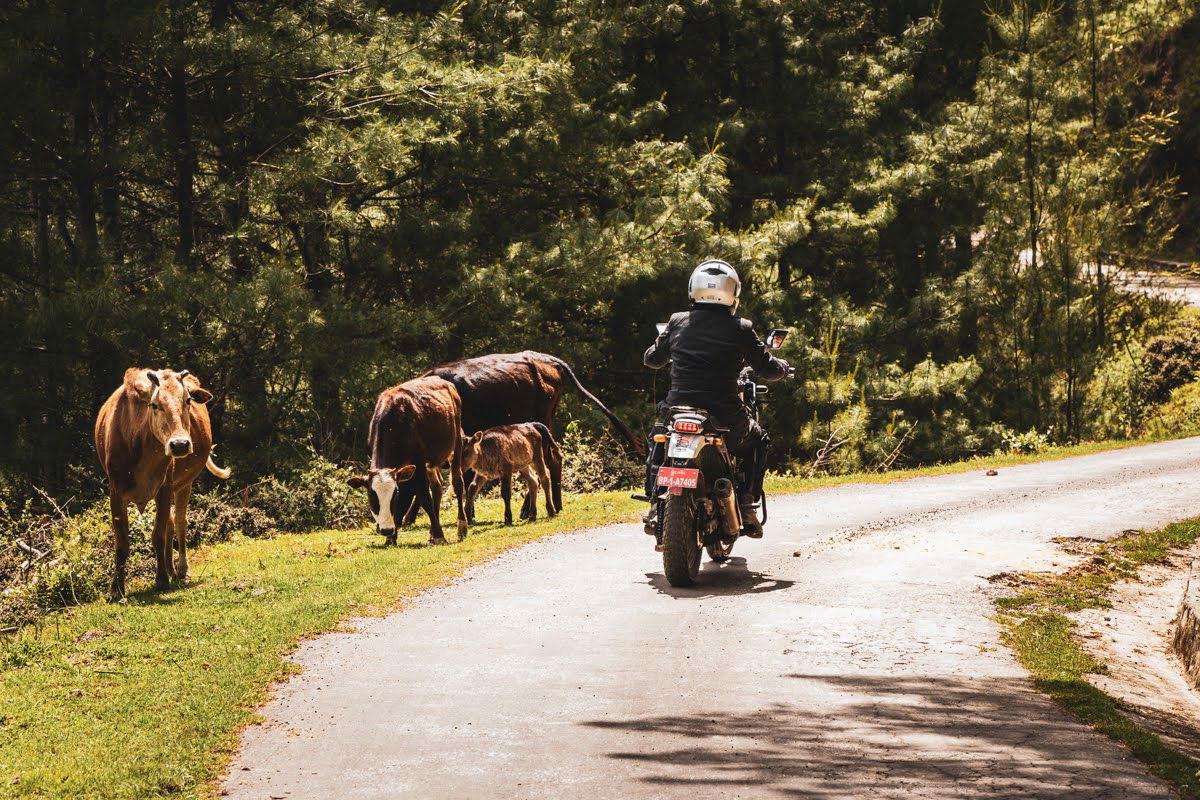
Tootling about through the forests and hillsides, it’s clear the country is enthused with a comforting sense of hassle-free calm. The locals have a manana attitude measured in BST – or Bhutan Stretched Time. Photographer Ben and I have rarely tapped our Enfields into fourth gear – fifth would be a total luxury.
This is particularly true on the mountainous road to Punakha, up the Dochula Pass, a route that twists and turns like a contorted Stelvio Pass. Anybody riding fast on this road would be branded a proper knob by locals – which segways neatly to Chimi Lhakhang, Bhutan’s fertility temple.
The phallus is a powerful symbol here and, with only 24.5bhp between my legs, why wouldn’t I swing by for a look? As part of the fertility ritual, hopeful women carry a large wooden phallus around the temple, praying they might be blessed by the spirit of the Divine Madman and his Thunderbolt of Flaming Wisdom.
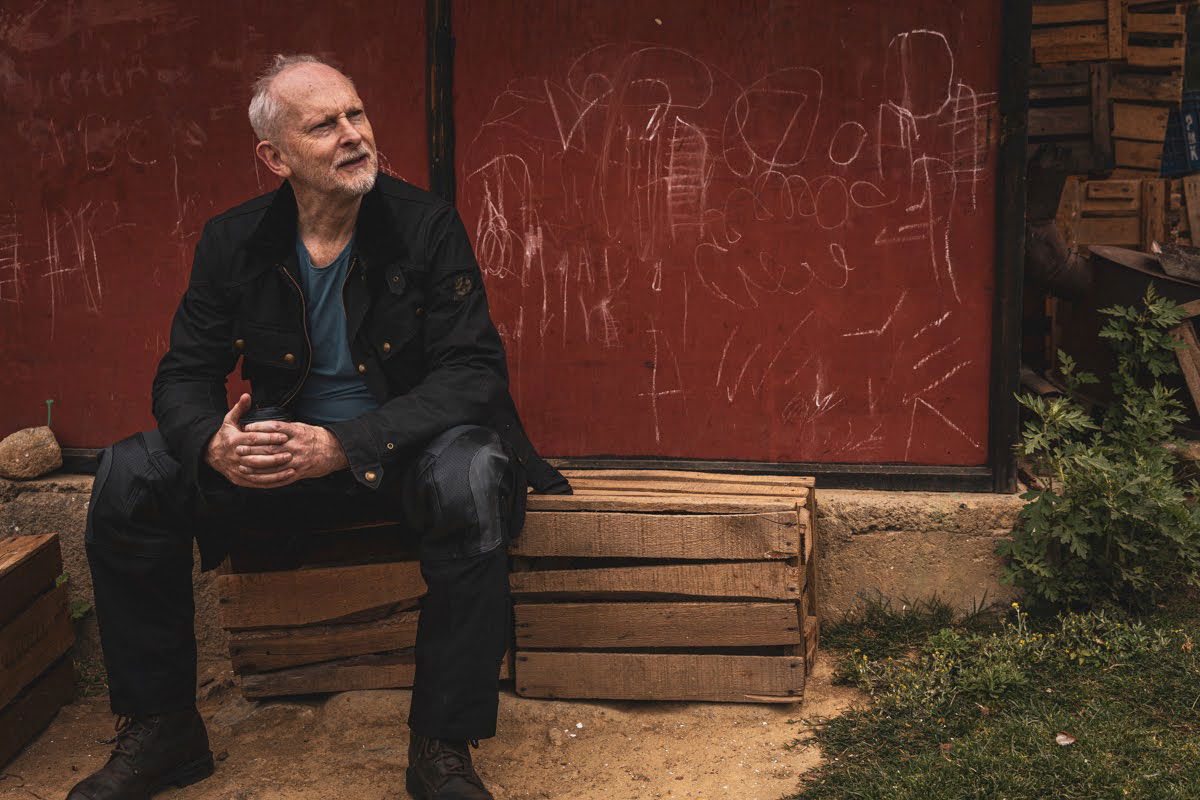
No, not a hallucination caused by the lush green cannabis that grows wild here. The madman in question was a Tibetan monk who visited Bhutan in the 15th century to share his Buddhist teachings, widely regarded as blasphemous and unorthodox in the extreme.
The ‘Saint of 5,000 Women’ is still a cult figure and, consequently, images of his rampant todger are shared everywhere – in dzong fortresses and temples, outside restaurants, painted on the walls of houses, even the salt and pepper pots have been buffed to erection.
Searching for salvation, we ride on to the Drumra Monastic School, where Jigme has arranged a game of football – a Monk XI versus the second squad. I’m invited to ditch my helmet and play but as both sides are dressed in red robes with shaved heads, it’s near impossible to pick out a team-mate.
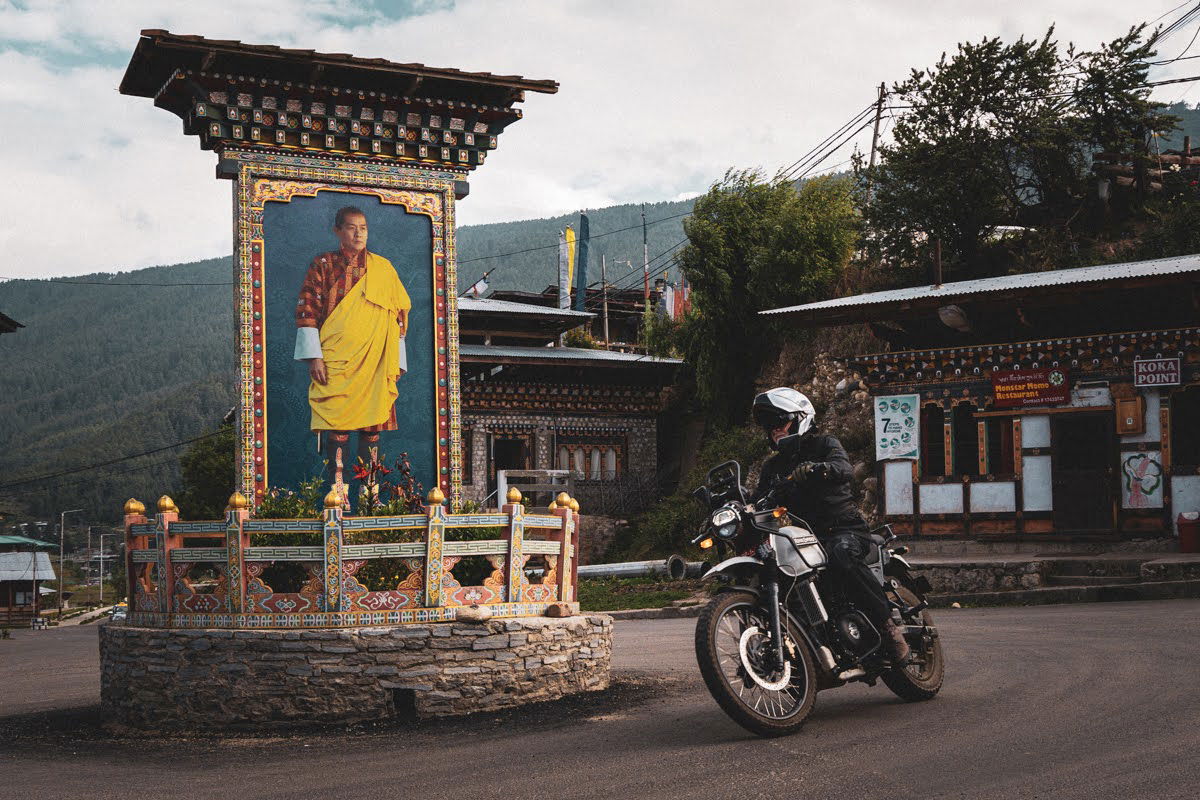
Bhutan is currently 183rd in the FIFA world rankings, but if everybody had to play the game in flip-flops or sliders, I guarantee these boys would be pummelling Argentina in the next World Cup. In the spirit of the game, I scored the first goal and then substituted myself for the great good.
Riding east to Bumthang, penises soon give way to pines, as the vast forests of Bhutan open up ahead of us. The road in is infested with wild horses, monkeys and, for some unknown reason, snooker halls. The national sport is archery, although the Bhutanese play a sharp game of field darts too.
If Bhutan didn’t feel authentic enough, Bumthang is a fertile region swathed in forests, buckwheat and red rice fields. Some of the oldest temples are located here but I’d suggest making time to park outside Café Perks in the main street and watch the world pass slowly by outside.
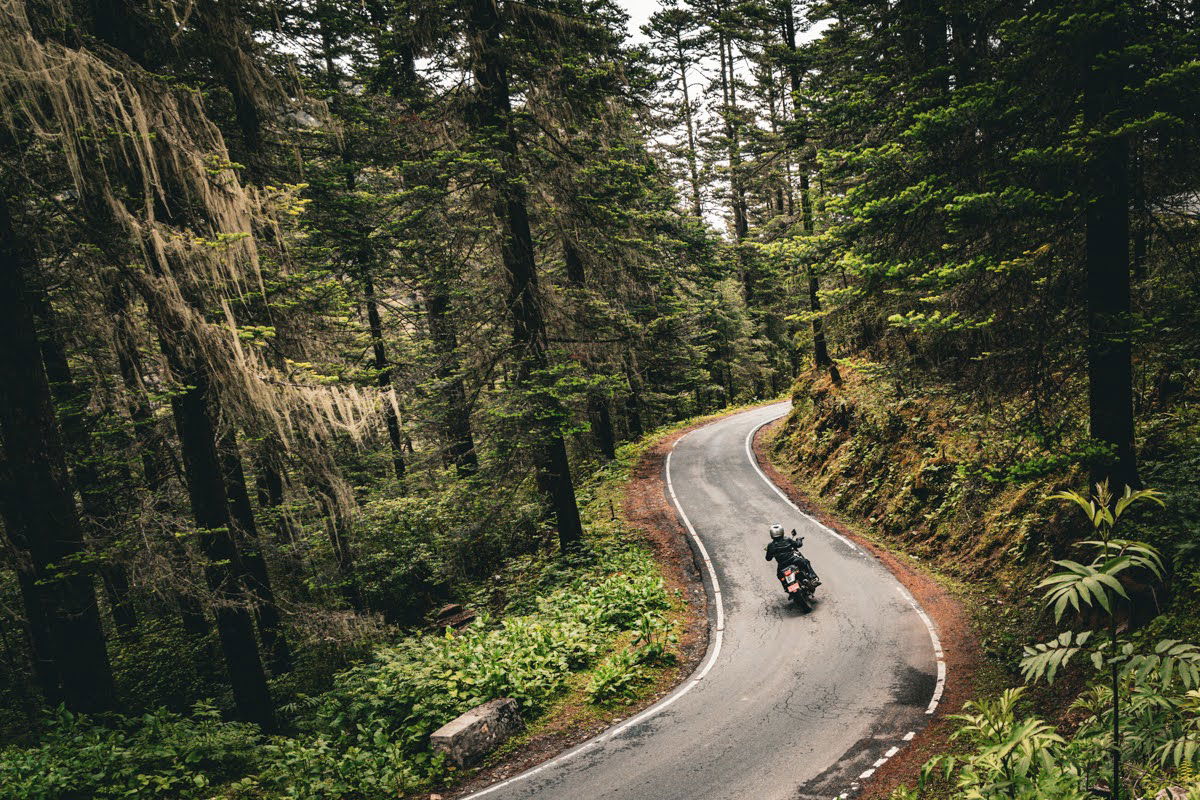
Most locals still prefer to eat with their fingers – entertaining but rice can be messy for a novice. Expect a lot of pumpkin soup, chicken and spice, often mixed with yak cheese. Ema Datshi is the national dish, garlic, split chillies and tomatoes with rice, plus more yak cheese. In the evening, a can of Bhutanese beer and a snooker match is a big night out, or try a hot stone bath, which does what it says on the tin.
Having made good use of the third and fourth gear cogs, by the time we return to Paro, I’ve properly bonded with my Enfield, a small adventure bike with a big heart. And while I haven’t put much strain on that air-cooled lump, or tested the reinforced steel frame to the full, Jigme can arrange an off-road adventure for those interested – in a country the size of Switzerland, there are very few places a Himalayan isn’t allowed to go.
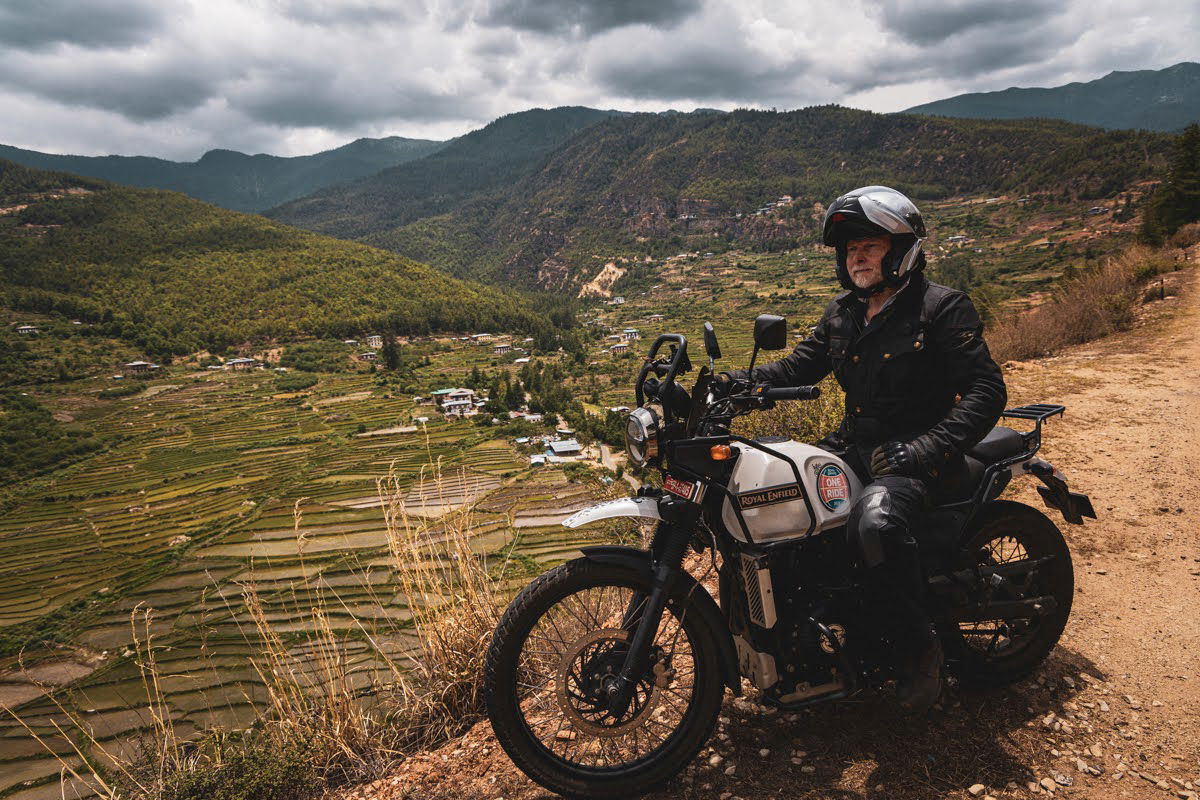
My own Himi hasn’t missed a beat riding the never-ending switchbacks, despite the rarefied air and potholed roads that climb to 12,000ft. The June weather has been decent too, we only hit one monsoon storm on the entire trip, hastily retreating to a roadside café that prepared tea so sweet it should have been served with an insulin pen.
Largely untouched by the modern world, in a country more interested in happiness than Gross Domestic Product, Bhutan is a unique and magical kingdom that also happens to be a biker’s paradise. Just accept it will be a thump-thump-thump single-cylinder adventure and the Himalayas will provide the epic backdrop.
Know before you go
Jigme Expeditions offers a ten-day bike tour from £2,500 per person full board, based on two people sharing a room in three-star accommodation. Price includes SDF, guide, road captain, technician, backup vehicle and motorbikes. Jigmeexpeditions.com. Return flights from London to Delhi from £740: onward Drukair return flights to Paro from around £450. For more information on Bhutan visit bhutan.travel.
Photography: Ben Akin-Smith
